第17章 CHAPTER Adoption(3)
To barter one's name in this mercenary manner is looked upon as derogatory to one's self-respect, although, as we have seen, to part with it for any less direct remuneration is not attended with the slightest loss of personal prestige. As practically the unfortunate had none to lose in either event, it would seem to be a case of taking away from a man that which he hath not. So contumacious a thing is custom. It is indeed lucky that popular prejudice interposes some limit to this fictitious method of acquiring children. A trifling predilection for the real thing in sonships is absolutely vital, even to the continuance of the artificial variety.
For if one generation ever went in exclusively for adoption, there would be no subsequent generation to adopt.
As it to give the finishing touch to so conventional a system of society, a man can leave it under certain circumstances with even greater ease than he entered it. He can become as good as dead without the necessity of making way with himself. Theoretically, he can cease to live while still practically existing; for it is always open to the head of a family to abdicate.
The word abdicate has to our ears a certain regal sound.
We instinctively associate the act with a king. Even the more democratic expression resign suggests at once an office of public or quasi public character. To talk of abdicating one's private relationships sounds absurd; one might as well talk of electing his parents, it would seem to us. Such misunderstanding of far-eastern social possibilities comes from our having indulged in digressions from our more simple nomadic habits. If in imagination we will return to our ancestral muttons and the then existing order of things, the idea will not strike us as so strange; for in those early bucolic days every father was a king. Family economics were the only political questions in existence then. The clan was the unit. Domestic disputes were state disturbances, and clan-claims the only kind of international quarrels. The patriarch was both father to his people and king.
As time widened the family circle it eventually reached a point where cohesion ceased to be possible. The centrifugal tendency could no longer be controlled by the centripetal force. It split up into separate bodies, each of them a family by itself. In their turn these again divided, and so the process went on. This principle has worked universally, the only difference in its action among different races being the greater or less degree of the evolving motion. With us the social system has been turning more and more rapidly with time. In the Far East its force, instead of increasing, would seem to have decreased, enabling the nebula of its original condition to keep together as a single mass, so that to-day a whole nation, resembling a nebula indeed in homogeneity, is swayed by a single patriarchal principle. Here, on the contrary, so rapid has the motion become that even brethren find themselves scattered to the four winds.
An Occidental father and an Oriental head of a family are no longer really correlative terms. The latter more closely resembles a king in his duties, responsibilities, and functions generally. Now, in the Middle Ages in Europe, when a king grew tired of affairs of state, he abdicated. So in the Far East, when the head of a family has had enough of active life, he abdicates, and his eldest son reigns in his stead.
From that moment he ceases to belong to the body politic in any active sense. Not that he is no longer a member of society nor unamenable to its general laws, but that he has become a respectable declasse, as it were. He has entered, so to speak, the social nirvana, a not unfitting first step, as he regards it, toward entering the eventual nirvana beyond. Such abdication now takes place without particular cause. After a certain time of life, and long before a man grows old, it is the fashion thus to make one's bow.